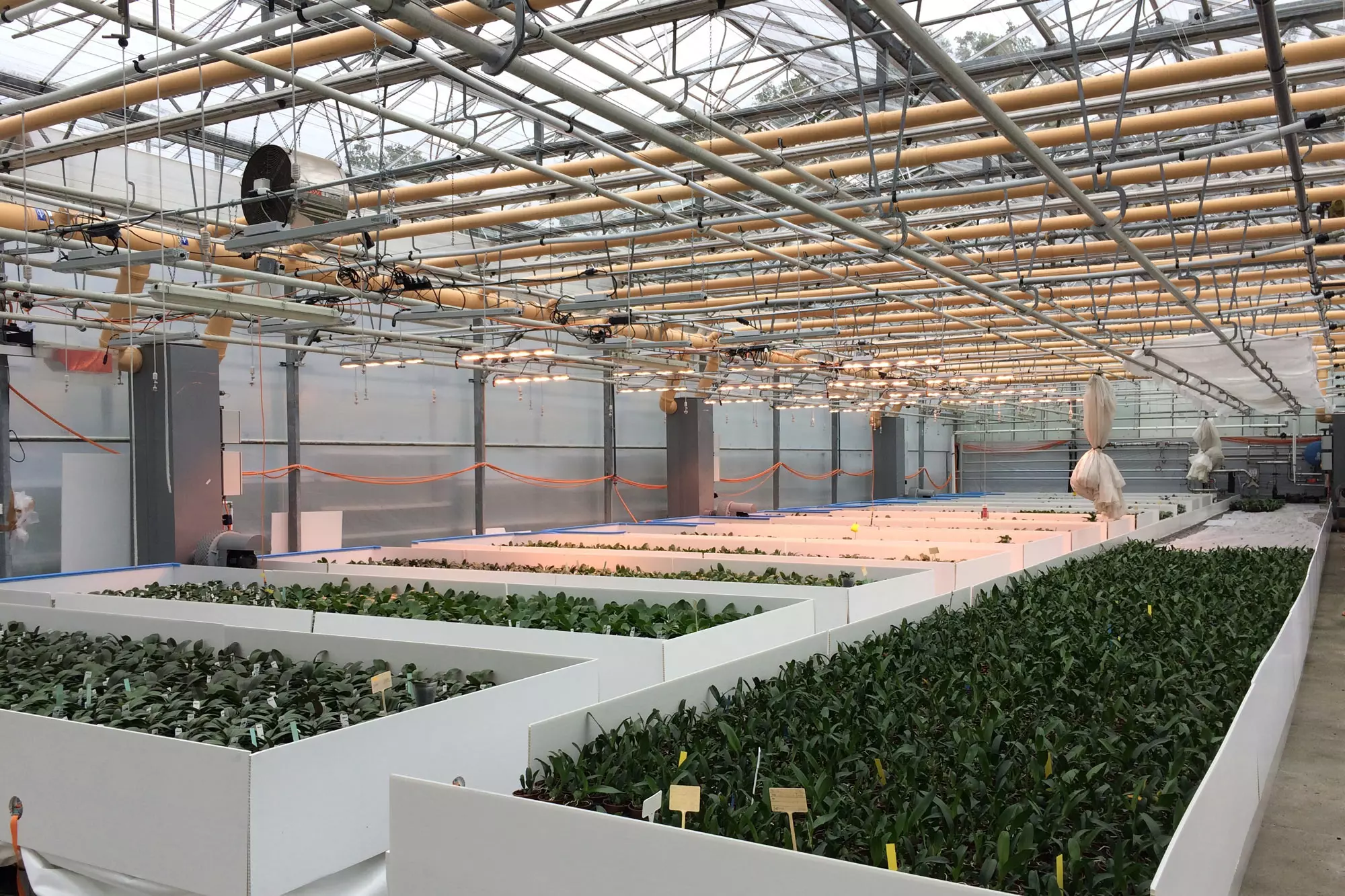Greenhouse project wins “Watt d’Or” award
Energy consumption for greenhouse heating and cooling can be slashed by fifty per cent with a highly efficient, targeted air conditioning approach.

The approach, which was developed by researchers at the ZHAW School of Engineering, received the "Watt d'Or" award from the Swiss Federal Office of Energy this year. The researchers chose an innovative approach for their project: instead of heating or cooling the entire greenhouse, only the individual plant shelves are supplied with perfectly conditioned air. This is achieved with what are known as absorption water washers, which reverse the plants’ natural transpiration process.
Over the course of several months, the researchers tested the new technology in a 600 sqm greenhouse at Meyer Orchideen AG. Over this trial period, they established that the energy consumption for heating and cooling greenhouses can be reduced by roughly half. Another advantage of this direct plant shelf air-conditioning system is that it allows for precise and controlled climatic growth conditions independent of the weather. What is more, plants with varying climatic requirements can be cultivated side by side in one greenhouse.
The next goal of the researchers is to see the technology used by multiple greenhouse operators in Switzerland and expand to include additional operations such as building climate control or drying processes. At the same time, the project can be integrated in a cutting-edge storage network currently developed by ZHAW students in the framework of an EU research project.
Innovative projects in energy research
The greenhouse project is not the only energy research project at the ZHAW that stands out for its innovative nature. Since 2014, the energy research focus has raised the visibility of energy research conducted at the ZHAW, resulting in increased expertise in various topics and subject areas. The research focus has been coordinated by the ZHAW Energy Research Board (ZERB) since 2019.